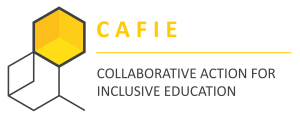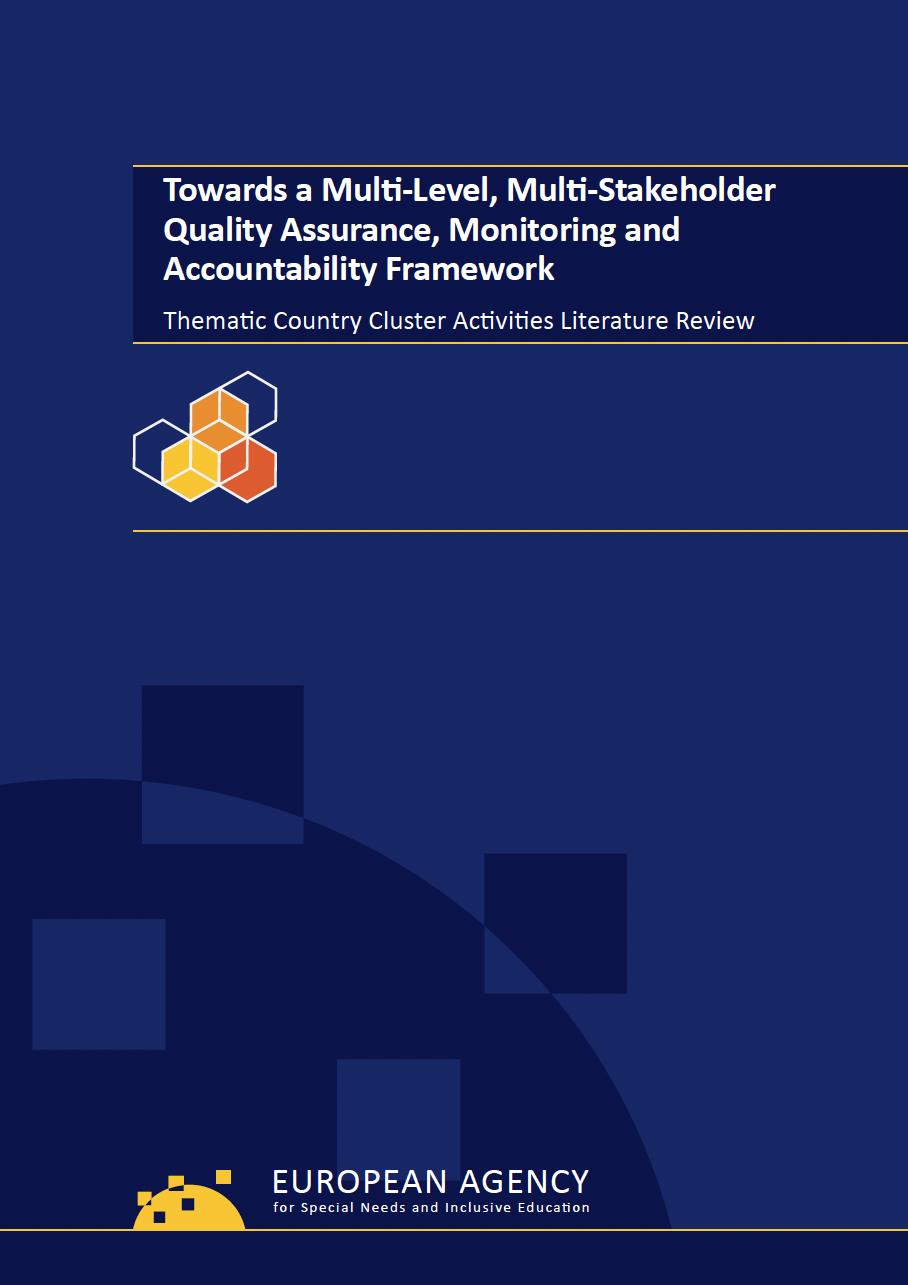The Collaborative Action for Inclusive Education (CAFIE) activity explores collaboration and cross-sector working at all system levels as a key factor in implementing inclusive education policy. It seeks to support EASNIE member countries to advance cross-sectoral work by providing them with a solid knowledge base, useful tools and examples, as well as networking opportunities and connections. By following a peer-learning methodology, it aims to enhance countries’ learning and increase their capacity to plan for and address complex problems related to the topic.
This activity is one of six within EASNIE’s Thematic Country Cluster Activities (TCCA). Each activity involves collaboration between a small group, or cluster, of EASNIE member countries. CAFIE is Cluster 5. TCCA focuses on member countries’ priorities and addresses country requests for more tailored activities to support policy development needs and build upon learning points from other EASNIE activities. The clusters aim to support countries in their efforts to promote continuous improvement for all stakeholders across the whole inclusive education system. For more information, visit the TCCA web area.
Activity framework
The 2024 literature review Towards a Multi-Level, Multi-Stakeholder Quality Assurance, Monitoring and Accountability Framework is the foundation for planning and preparing the first TCCA cycle (2023–2025). It explains that the best education systems are those where collaboration and learning between stakeholders at all levels are well-established. Collaborative and inter-sectoral work helps develop inclusive policies and practices in schools.
However, implementing inclusive education and the growing diversity of learners pose challenges that call for greater co-operation across various policy areas and sectors, such as employment, social work, health, well-being, migration, youth and culture.
As cross-sectoral collaboration between government or education levels is crucial, countries need to explore the different roles of stakeholders and the processes used at different system levels.
EASNIE’s ecosystem model shows the dynamic interactions within and between the various education system levels. CAFIE uses this model to examine the broader policy context in which schools operate. Importantly, it also looks at how multi-level governance, collaboration and partnership working impact quality assurance and accountability.
Participants and target group
The CAFIE cluster countries are Belgium (French community), Denmark, Germany, Hungary, Slovenia and Sweden. These countries have been grouped based on their stated priorities and their different governance structure and strategies.
Cluster country representatives participate actively in interactive cluster meetings. They:
- provide country-specific information;
- present focused country information in the working meetings;
- contribute to formal exchanges;
- organise/participate in in-depth peer-learning activities;
- disseminate news items, social media content, outputs and findings from the activity in their countries/networks.
Country-level stakeholders, such as education professionals from different sectors, are also involved for targeted contributions in cluster meetings. The participation of local stakeholders ensures the wider representation of regional voices and relevance of the planned outputs.
Aims
The CAFIE activity aims to analyse key aspects of collaboration in inclusive educational practice within the cluster countries’ systems. Its overall goal is to explore strategies that could help bring about changes in collaborative, cross-sector working.
CAFIE particularly aims to:
- map out systems’ strengths and inconsistencies and identify mechanisms that promote cross-sectoral work;
- showcase examples of collaboration and cross-sectoral working where there is evidence of successful outcomes for all learners.
The key questions that the activity seeks to answer are:
- What are the current barriers/challenges and conditions for success (enablers) for cross-sectoral collaboration?
- What strategies can effectively enhance capacity for cross-sectoral collaboration?
- What are effective strategies for monitoring and evaluating cross-sectoral collaboration?
Activities and outputs
The CAFIE activities focus on creating a platform for peer learning, where country representatives exchange knowledge, experience and practice.
The cluster work will:
- systematically identify different forms of collaboration and evidence-based strategies;
- enable formal country exchanges in working meetings;
- collect information provided by countries;
- organise focused peer-learning activities.
CAFIE work, in combination with the parallel TCCA work, will provide EASNIE member countries with activities (processes) and resources (outputs) that:
- explore policy development issues;
- support self-reflection;
- share information about what other member countries do;
- aid policy review and development.
The implementation work started in 2024 and will run throughout 2025. Synergies between different clusters (in the form of joint meetings and common events) will also be sought throughout the cluster activity’s lifetime.


